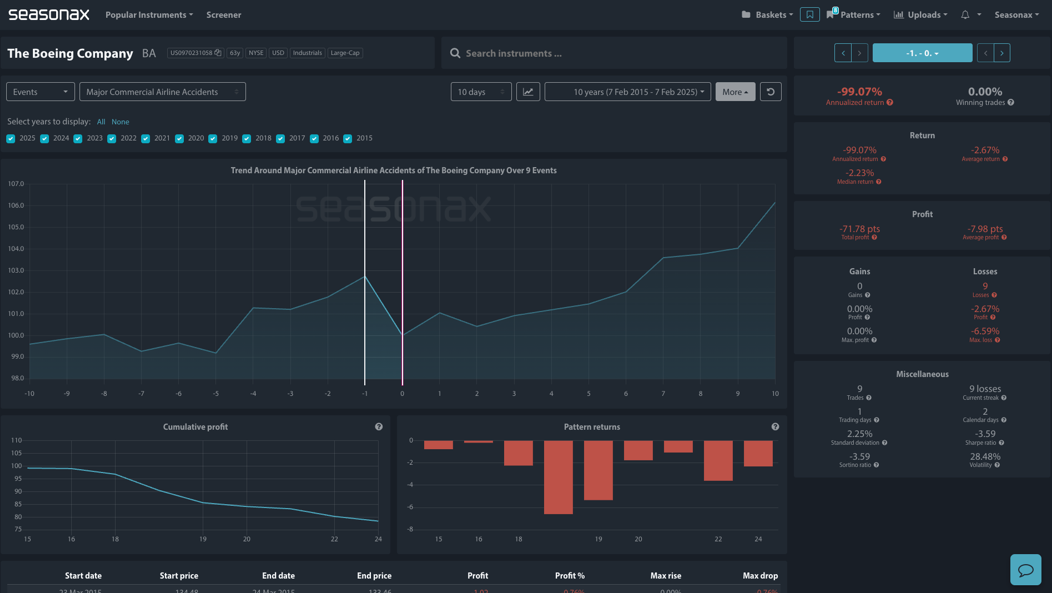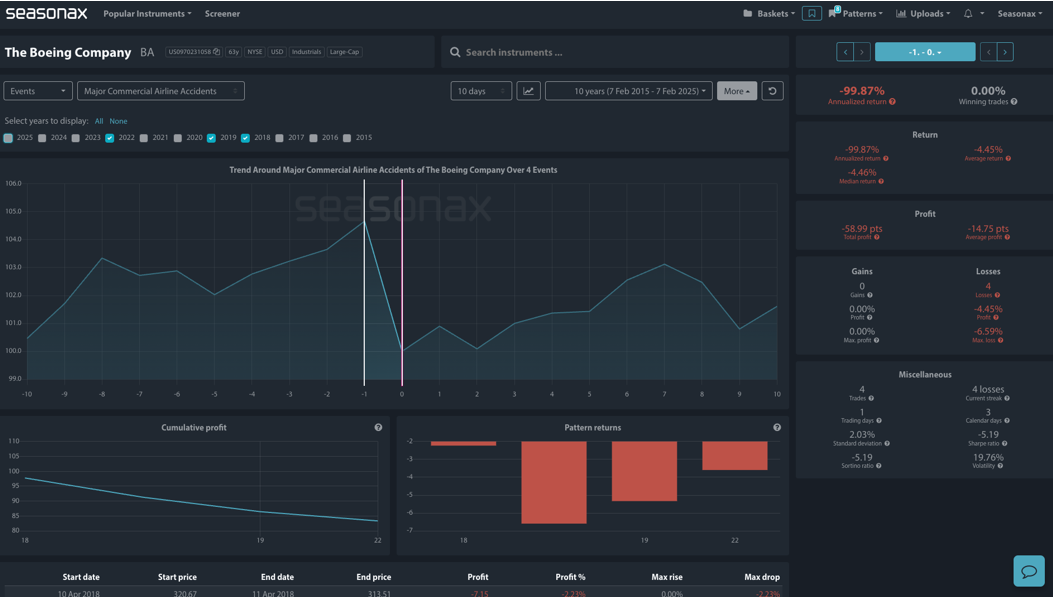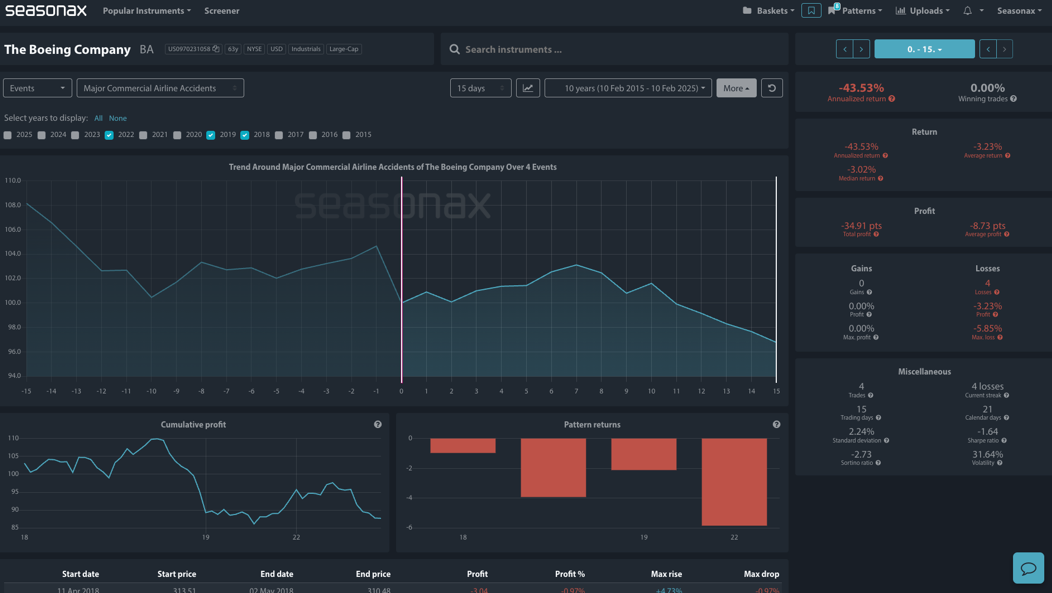Dear Investor ,
You have probably heard about the tragic plane crashes in recent weeks. But as an investor , you may also be interested in how the share price of aircraft manufacturers such as Boeing behaves after such air crashes. In the past, incidents such as the crash of Lion Air Flight 610 (2018) and Ethiopian Airlines Flight 302 (2019) have led to significant market reactions. We want to analyze the situation in more detail .
Historical market reactions to airplane crashes
A study of share price performance after nine serious airplane accidents in the last ten years shows an average price drop of 2.67%. The reaction is usually immediate as investors respond to safety concerns, regulatory scrutiny and potential legal consequences. The chart shows you the typical development of the Boeing share price around crash days.

Key figures:
- Average return after the event: -2.67 %
- Median return: -2.23 %
- Maximum loss: -6.59 %
- Winning trades: 0 % (all observed events led to losses)
These figures make it clear that serious airplane accidents represent a significant downside risk for Boeing shares. The Seasonax filter option can also be used to analyze how accidents involving structural problems on Boeing aircraft specifically affect the share price.
Airline accidents vs. structural errors at Boeing
While airplane accidents generally have a negative impact on Boeing shares, the consequences are particularly serious when they are due to technical or structural defects in Boeing airplanes.
Historically, accidents such as the crash of Lion Air Flight 610 (2018) and Ethiopian Airlines Flight 302 (2019), both of which were linked to problems with the 737 MAX’s MCAS system, led to massive price losses. These events resulted in a worldwide flight ban for the affected model series and caused significant market value losses for Boeing.
Other cases such as Southwest Flight 1380 (2018), which raised concerns about engine safety, or the crash of China Eastern Flight 5735 (2022), the cause of which remained unclear, also led to mistrust of the structural integrity of Boeing aircraft.
A targeted analysis shows that Boeing stock suffers significantly greater and longer-lasting losses after accidents caused by design or system deficiencies than after crashes caused by pilot error or weather conditions.
Seasonal patterns in accidents with Boeing design flaws
A seasonal analysis of share price performance following accidents involving Boeing-specific design flaws shows an annualized return of -99.87%, with 100% of these events resulting in losses.

- Average share price decline after the incident: -4.45 %
- Maximum decrease for a single event: -6.59 %
The share price usually falls sharply immediately after the accident as investors react with concern to official investigations and possible production stoppages. In contrast to more general airplane crashes, where losses are often limited, technical problems with Boeing aircraft lead to more severe and longer-lasting price drops. The analysis also shows that these losses tend to persist: In the 15 days following the event, Boeing shares remained under pressure, losing an average of 5.85%.

Conclusion: Dealing with the seasonal risks of Boeing shares
Boeing shares remain vulnerable to negative headlines, with major airplane accidents triggering significant short-term selling pressure. Data shows that accidents caused by Boeing’s systemic design flaws have a more severe impact than general aviation incidents.
When structural or software-related problems such as the 737 MAX’s MCAS system occur, deeper share price losses, longer regulatory scrutiny and a delayed recovery can be expected. Investors and traders can use these seasonal patterns to better gauge how Boeing stock might perform after technical incidents.
Use Seasonax for your professional handling of market-moving events!
Yours sincerely,
Giles Coghlan, CMT
Macro Strategist Seasonax

